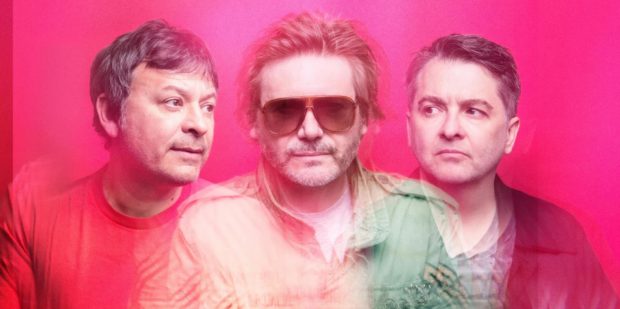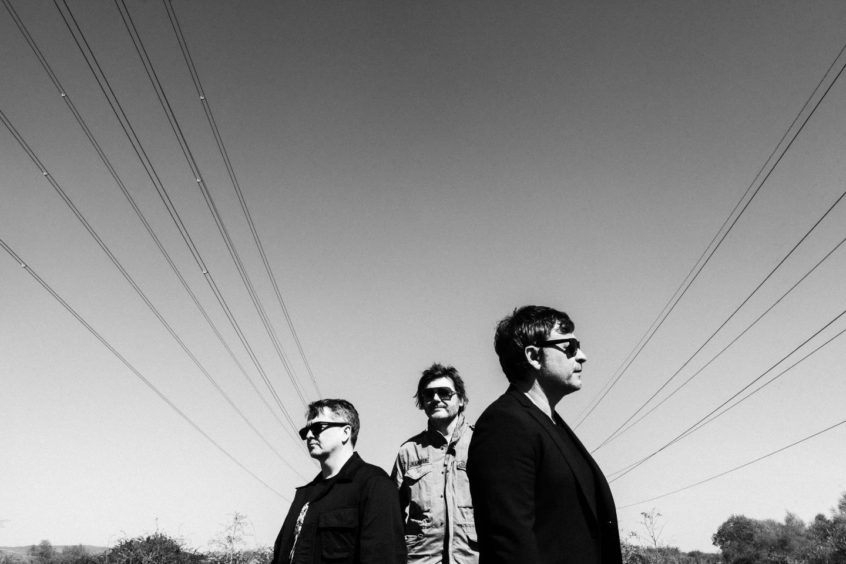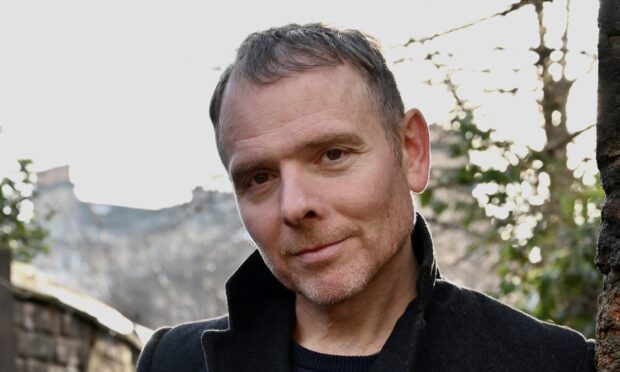“We live in Orwellian times, it feels impossible to pick a side,” runs the chorus of the second song on Manic Street Preachers’ new album The Ultra Vivid Lament.
“In sentences that dance and hide, the truth becomes a broken lie,” continues the track, which is titled, in very on-the-nose fashion, Orwellian.
It’s as fiercely precise a lyric as any rock group will write about the times we’re living in at the beginning of the 2020s.
Culture wars and digital hysteria
“It’s much more about the general culture wars, the tone of debate, the digital hysteria and the dangerous nature of everything we say,” their lyricist and bassist Nicky Wire recently told the NME about the song.
“It’s about a paralysis of the mind.”
The manner of the song’s delivery could have come from any point in the Manics’ history over the 23 years between their previous two number one albums, though.
The bombastic guitars and James Dean Bradfield’s impassioned, hearty vocals on Orwellian are hard to distinguish from those of their most recognisable song, If You Tolerate This Your Children Will Be Next.
Yet that track arrived in the summer of 1998, the lead single of the group’s fifth album This is My Truth Tell Me Yours, and the month between their release was the Manics’ heyday, when their music – If You Tolerate, in particular – seemed to be playing every time a radio was turned on.
If it ain’t broke, don’t fix it
In the years since, they’ve become a band who have adopted a musical “if it ain’t broke, don’t fix it” manifesto, and it’s taken all those years for the world to catch up with them again.
When The Ultra Vivid Lament was announced as their first number one record since This is My Truth, the band gave stunned thanks on their social media accounts.
The Welsh trio looked like a group of dads snapped at the school gates, although the towering Wire had at least flung on a pair of tinted rock star shades and a smart white suit jacket.
“A huge thank you to everyone involved for making this happen,” read their sober statement.
Of course, the headline-grabbing story that they’ve beaten the pop group Steps to number one for the second time in their careers also glosses over the enduring affection in which the Manics have been held for all of those years.
Of the eight albums they’ve released in the interim, only one – 2004’s relatively dull Lifeblood – wasn’t a top five success.
There are many who still love them since the punkish and infamously ‘4 REAL’ days, when their sometime fourth member Richey Edwards plumbed the depths of the human soul with his lyrics, before permanently going missing following the release of their fourth album The Holy Bible in 1995.
The definitive Manics era
For most of their huge number of fans, the anthemic post-Britpop high of Everything Must Go (1996) and This is My Truth two years later is the definitive Manics era.
If they’ve coasted on that sound, it’s not for want of a thrilling live volume and power in their gigs since then.
In weirder times than ever, however, the newest model Manics have clicked with the spirit of the era – uncertain, concerned, yet determined to see hope through necessity, if nothing else – on The Ultra Vivid Lament.
References to Abba
The Secret He Had Missed is an airy, bittersweet dream of “the beach at Tenby”, which contains one of the album’s main musical references to Abba.
Tthe other is on Don’t Let the Night Divide Us, which anthemically rails against “those boys from Eton.”
Into the Waves of Love unexpectedly channels Pink Floyd’s The Great Gig in the Sky at the end, and Blank Diary Entry guest-stars the gruff tones of Screaming Trees’ Mark Lanegan.
Most compelling record since the ’80s
Through the personal tragedy of losing both his parents since the last record, and the enforced honing period brought on by lockdown, Wire has devised his band’s most complete and compelling record since the 1990s.
It’s personally affecting, and he and his bandmates’ own personal stories can be heard in there, but it’s also thrillingly universal.
‘Everything has been chipped away at’
“Everything has been chipped away at, by ourselves and by outside factors,” Wire told music site the Quietus before its release.
“With this album we looked at each other and realised that the only thing we’ve got left, the essence of the band, is creativity… (so) let’s cherish it.”
Hearing it live should be an emotional experience.
- Manic Street Preachers play Usher Hall, Edinburgh, on Tuesday, September 28; Fat Sam’s, Dundee, on Wednesday, September 29. www.manicstreetpreachers.com












